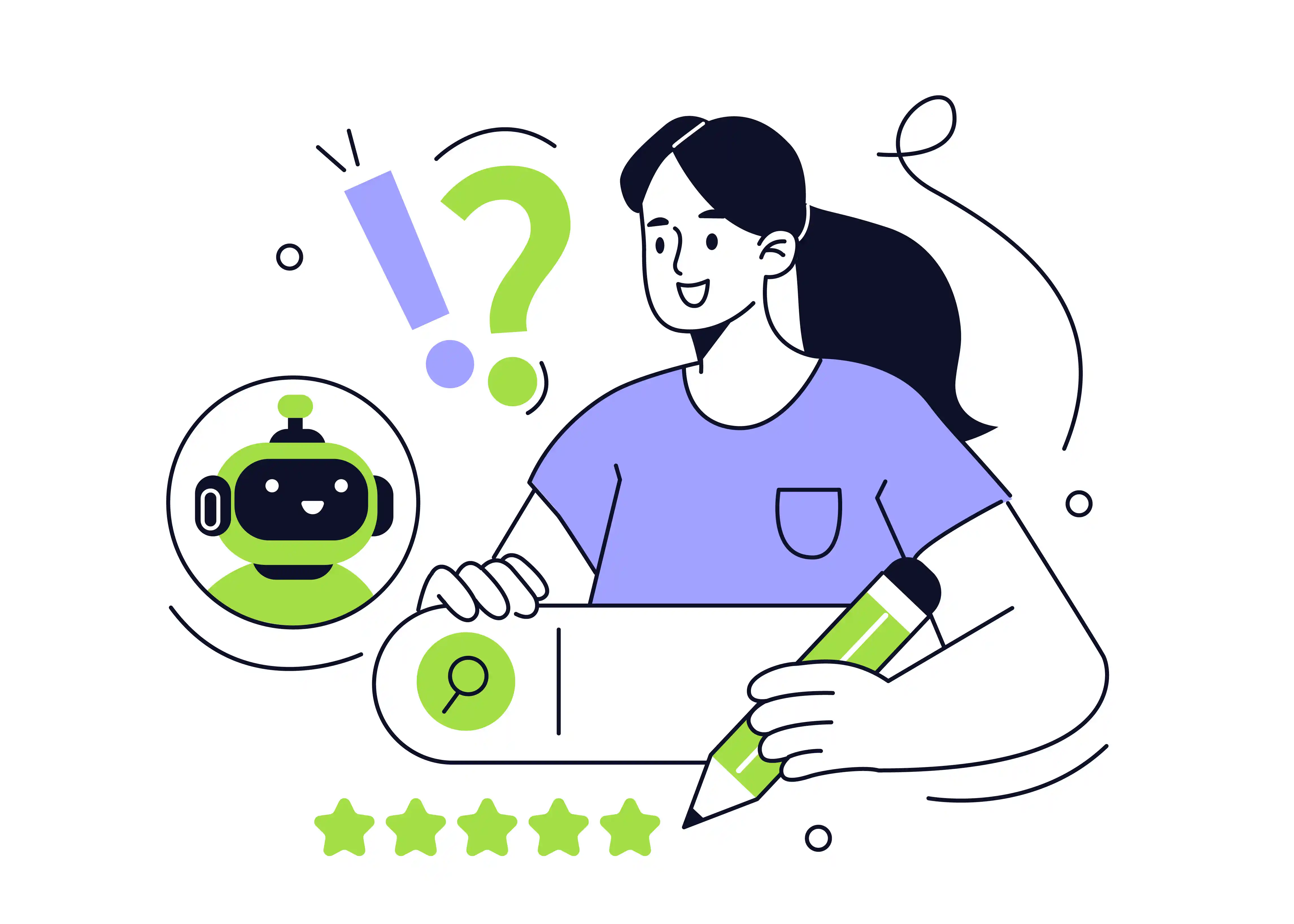
AI training obligation
European AI Regulation: mandatory training for companies
From February 2025, the revised European AI regulation will come into force, which provides for mandatory training for employees in companies that work with AI systems. Wondering if you are affected? Don't worry, we'll explain what you need to know!
The introduction of mandatory AI training is intended to ensure that all employees have a sufficient level of AI expertise to meet the requirements of the EU AI Act. In this article, we would like to highlight the relevant core elements of this regulation in order to provide comprehensive guidance for the challenges ahead.
First, let's take a look at what the AI Regulation actually is.
What is the EU AI Regulation?
The EU AI Act is the EU's first comprehensive AI regulation. It sets out clear rules to make AI systems safe, transparent and innovation-friendly. Its aim: to minimize risks and strengthen trust.
Who is an operator of AI systems?
Operators of AI systems have a special responsibility to companies. Even if there is currently no supervisory authority to monitor them, companies are not only responsible for the development and provision of AI solutions, but must also ensure compliance with the new EU regulations.
But who is the operator of an AI system?
According to Art. 3(4) of the AI Act, an operator is a "natural or legal person, public authority, agency or other body which uses an AI system under its own responsibility [...]".
This makes it clear: If AI is used in a company, the requirements of the AI Act must be complied with!
In particular, companies must ensure that employees who work with artificial intelligence have the necessary AI skills. In some cases, this requires comprehensive planning and implementation of training programs that go beyond purely technical understanding and also include ethical and legal aspects.
The AI Regulation applies to anyone who develops or operates AI systems - from companies to public authorities and organizations. Private users remain unaffected by the regulations. So if you use AI in your company, such as ChatGPT, then the requirements of the AI Act apply to you and therefore a training obligation for you and your employees!
AI training obligation for employees
You should now have an idea of whether the AI Act also affects you. But where exactly is the AI training obligation for employees regulated?
Article 4 of the AI Act is the linchpin of the AI skills training obligation. The AI training obligation is a central element of the AI Regulation and requires that companies provide their employees with a sufficient level of AI competence to be able to use AI systems safely. This applies to every person who works with AI systems on behalf of the company. The aim is to ensure that AI systems can be used without endangering people or society.
Why is Article 4 of the EU AI Act so important for my company?
Article 4 of the AI Regulation focuses on the AI-related skills and qualifications of employees. Companies must ensure that their employees have the necessary skills to use AI safely and effectively. The EU-AI Act defines AI competence as "the ability [...] to use AI systems competently and to be aware of the opportunities and risks of AI and the potential harm it can cause"
Employees must therefore not only understand how these systems are used, but also be aware of the associated risks and challenges.
As part of the FIDAcademy, we offer a course that fulfills the AI training requirement! Our AI training courses are designed to help provide the necessary knowledge and prepare employees for the use and management of AI systems.
What skills should be acquired?
1. technical know-how: understanding how AI algorithms, machine learning and generative models work
2. regulatory knowledge: Knowledge of the legal requirements and ethical principles in dealing with AI.
3. application-specific knowledge: Ability to use AI safely and effectively in specific industries.
Implementation of the AI regulation in companies
It is now clear: the regulation stipulates that companies are obliged to train their employees accordingly so that they have sufficient skills to use AI safely. But what is the best way to proceed? Companies can ensure that their employees meet the legal requirements through targeted AI training.
1.preparation meeting:
Preparing for the AI regulation and meeting the training requirement should be considered as part of your strategic planning. So before you set out and restructure all the processes in your company, you should check which AI systems are used in which areas and which specific skills are required to use these systems safely and efficiently.
Do you need support? We at FIDA will be happy to advise you with our AI consulting and help you to use artificial intelligence efficiently and legally compliant!
2. have training courses carried out:
In the second step, companies should take action and start planning and implementing the necessary steps. This includes identifying training needs, selecting suitable training measures and continuously assessing employees' AI skills.
With AI competence training as part of our FIDAcademy, we offer companies exactly the training they need to implement the AI Act!
Conclusion:
The European AI Act places new demands on companies and their employees. However, the AI regulation is also an opportunity to strengthen their own competitiveness and position themselves as a responsible company.
The training obligation from February 2025 requires companies to plan and implement early on in order to ensure a sufficient level of AI competence.
Companies should use available resources to prepare their employees for the challenges of dealing with AI systems.
As experts with many years of experience in the IT industry and the development of AI technologies, we are here to help and advise! Would you like to find out more about how FIDA can make your company fit for the EU AI Act? We look forward to hearing from you!
Block error: "Undefined variable $form" in block type: "form"





